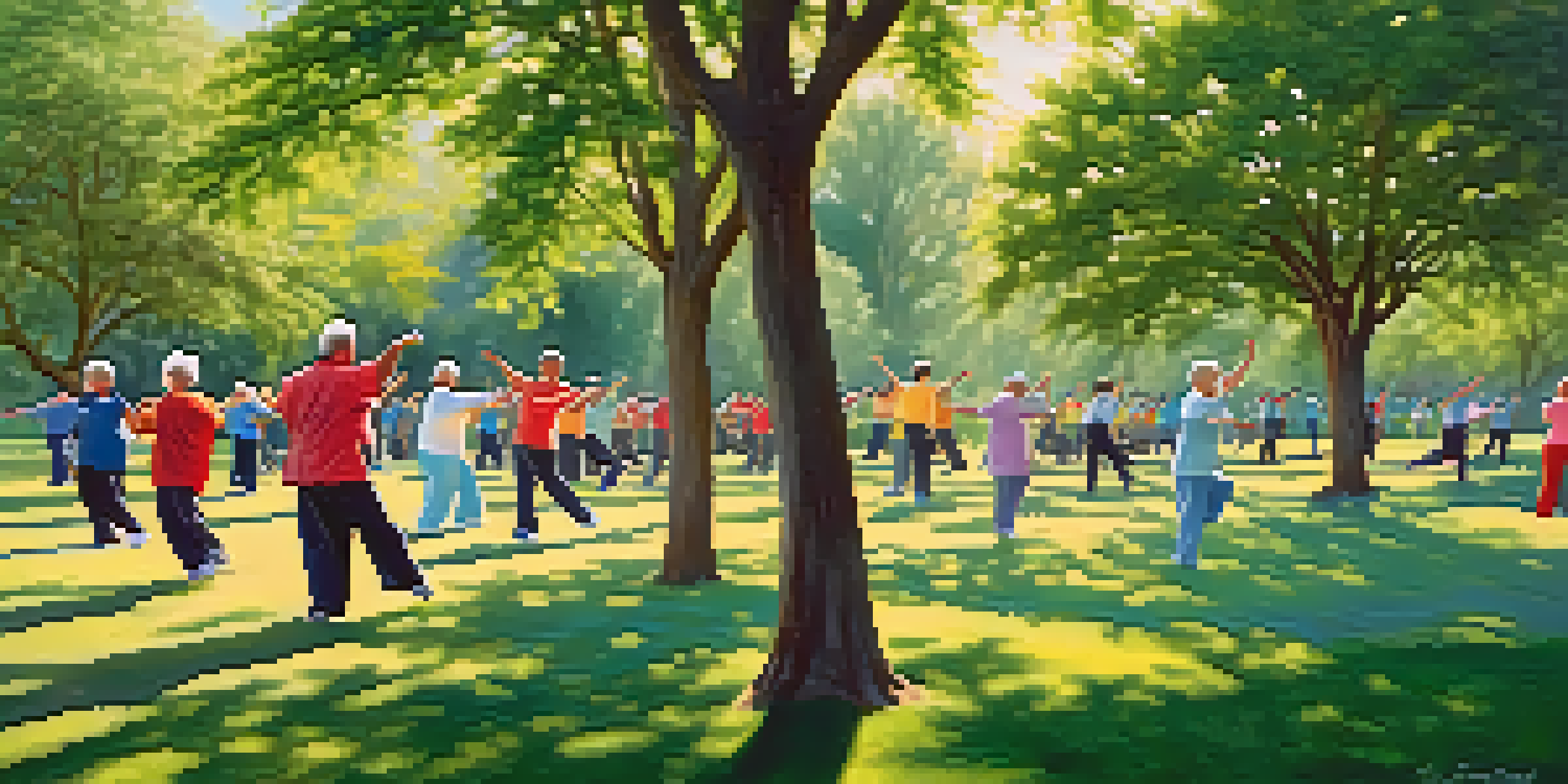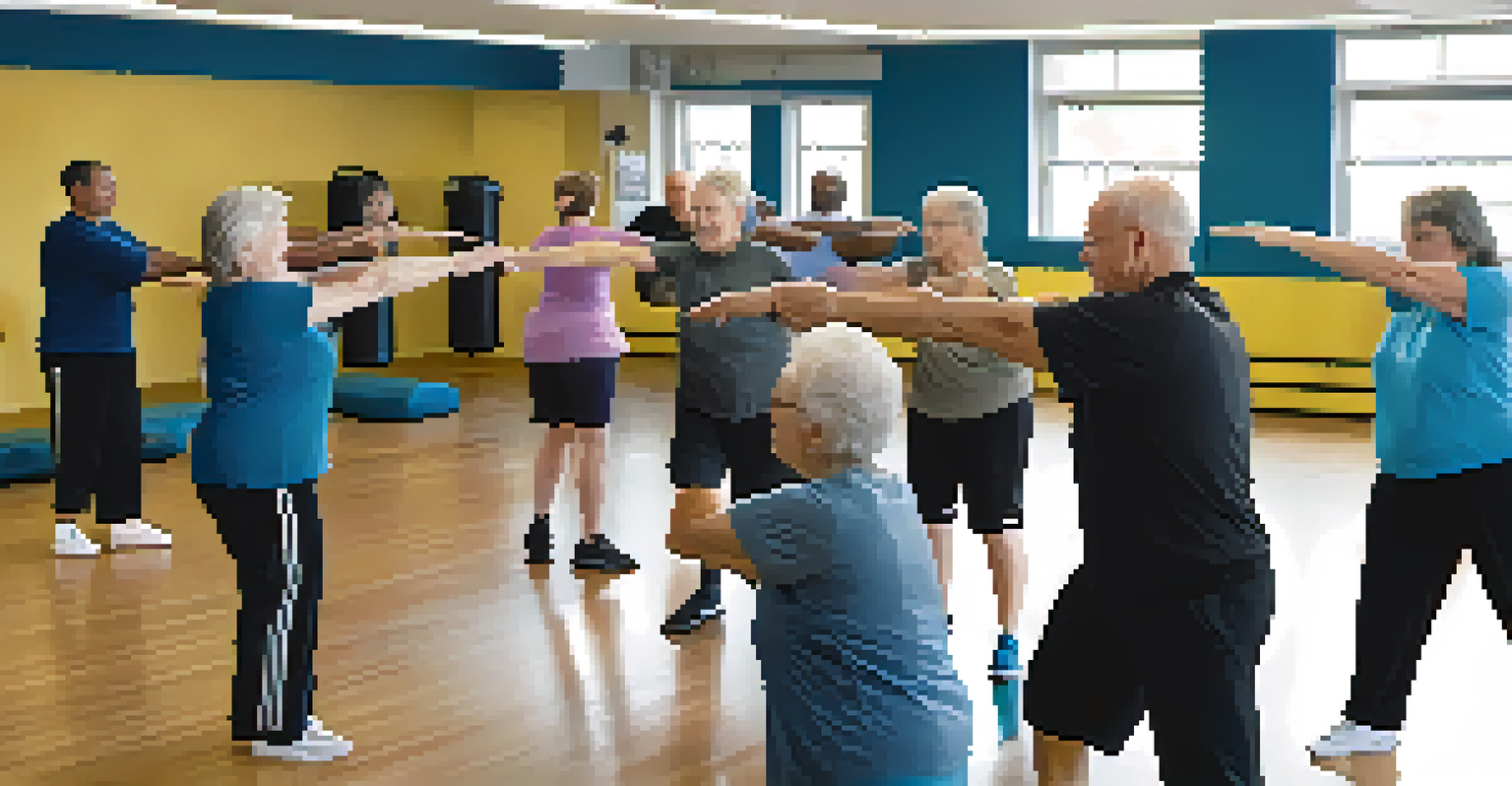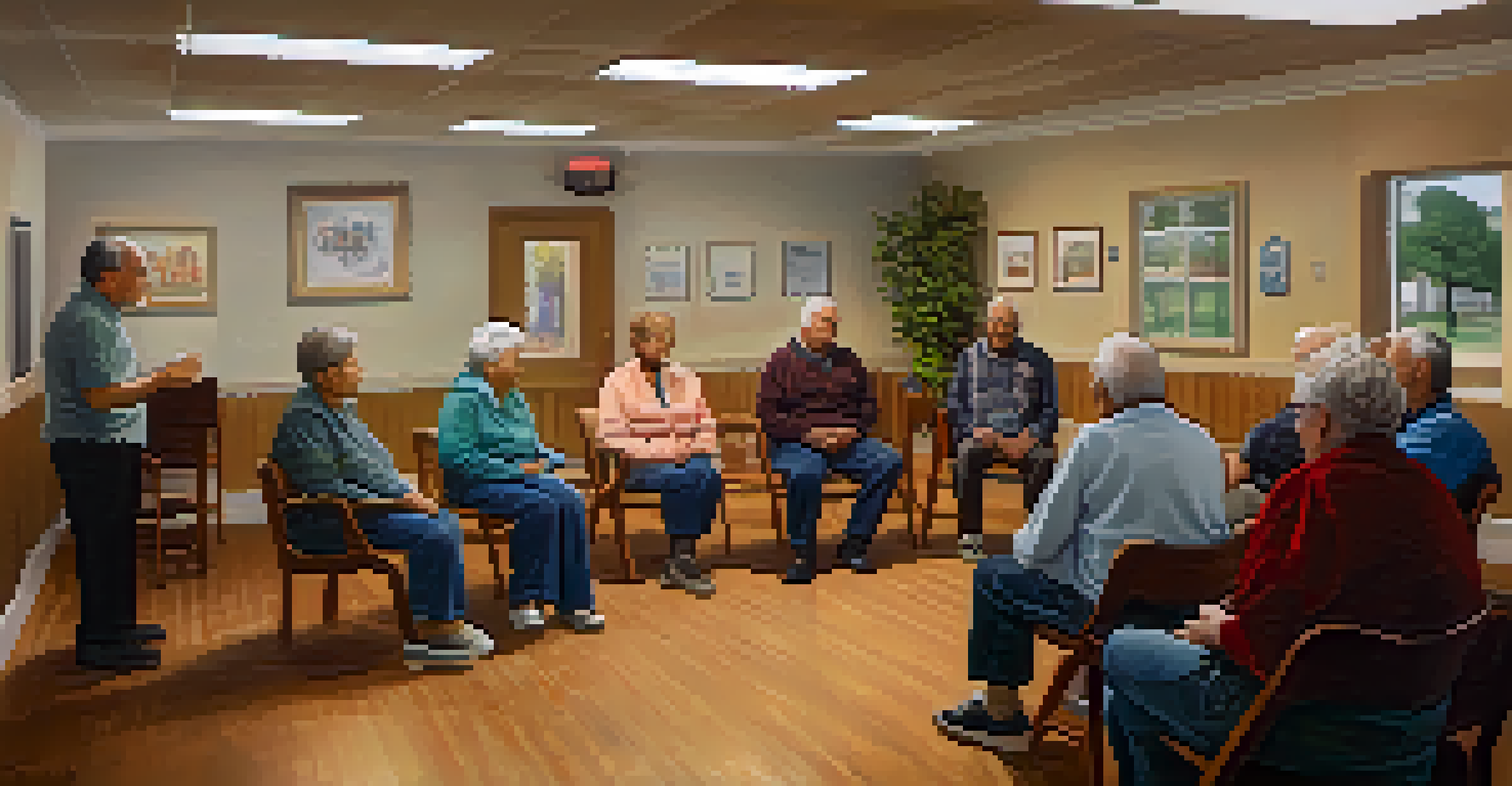Self-Defense Skills for Older Adults in Martial Arts

Understanding Self-Defense: Why It Matters for Older Adults
Self-defense is more than just physical techniques; it’s about confidence and awareness. For older adults, knowing how to protect oneself can significantly enhance safety and peace of mind. As the world changes, so do the challenges we face, making it essential for older adults to feel empowered.
The best way to predict your future is to create it.
Incorporating self-defense into your routine can also promote physical fitness and mental sharpness. The practices involved in martial arts not only teach you how to react but also help you stay agile and alert. This holistic approach supports overall well-being, which is vital as we age.
Moreover, self-defense training fosters a sense of community. Joining a class specifically designed for older adults can create friendships and a support network, making the learning process enjoyable. It’s about sharing experiences while acquiring skills that can help you in real-life situations.
Choosing the Right Martial Art for Older Adults
With various martial arts styles available, selecting the right one is crucial. Some styles focus on strikes, while others emphasize grappling and self-defense techniques. For older adults, disciplines like Tai Chi and Aikido can be particularly beneficial due to their low-impact nature and focus on fluid movements.

Tai Chi, often referred to as 'meditation in motion,' helps improve balance, flexibility, and coordination. These physical attributes are essential for preventing falls—a common concern as we age. The slow, deliberate movements also promote relaxation, reducing stress and anxiety.
Empowerment Through Self-Defense
Self-defense training enhances safety and confidence for older adults, promoting a sense of well-being.
Aikido, on the other hand, teaches practitioners to redirect an opponent's energy, making it effective without relying on brute strength. This aspect is especially appealing for older adults, as it allows them to defend themselves while minimizing the risk of injury. Finding a class that resonates with your interests will make learning more enjoyable.
Basic Self-Defense Techniques Everyone Should Know
While martial arts encompass various techniques, some basics can be incredibly effective for self-defense. Simple moves such as wrist grabs, strikes to vulnerable areas, and escape techniques can empower you without requiring extensive training. These skills can be learned in introductory classes or workshops.
Self-defense is not just a set of techniques; it's a state of mind.
For instance, learning how to break free from a wrist grab is a fundamental skill that can be practiced easily. This technique focuses on leverage rather than strength, making it accessible for older adults. Practicing these moves regularly can enhance muscle memory, ensuring a quicker response in real-life situations.
Additionally, understanding how to identify and avoid dangerous situations is crucial. Self-defense isn't solely about physical techniques; situational awareness plays a significant role. By recognizing potential threats early, you can avoid confrontations altogether, reinforcing the idea that prevention is always better than cure.
Building Confidence Through Training and Practice
Confidence is key when it comes to self-defense, and training can significantly boost this trait. As older adults practice martial arts, they become more familiar with their bodies and capabilities. This empowerment translates into a greater sense of security in everyday life.
Regular practice not only builds physical skills but also fosters a mindset of resilience. The challenges faced in training—such as learning new techniques or sparring—help develop a mental toughness that is invaluable beyond the dojo. Each small victory in practice reinforces the belief that you can handle difficult situations.
Choosing Suitable Martial Arts
Styles like Tai Chi and Aikido are ideal for older adults due to their low-impact nature and focus on fluid movements.
Moreover, as you progress in your training, you may find a supportive community that encourages your growth. Sharing experiences with fellow practitioners creates a sense of belonging, further enhancing your confidence. This combined support and skill development make martial arts an excellent choice for older adults.
Adapting Techniques to Personal Needs and Limitations
One of the beautiful aspects of martial arts is the adaptability of techniques to suit individual needs. Older adults may have unique physical limitations, and instructors can often modify techniques to ensure safety and effectiveness. This personalization is crucial for fostering a positive training experience.
For example, if a certain movement is challenging due to joint issues, an instructor can provide alternative techniques that achieve similar results without compromising safety. This tailored approach not only prevents injuries but also helps maintain motivation and engagement in training.
Listening to your body and communicating with your instructor about any discomfort is essential. A good instructor will prioritize your well-being and adjust the training accordingly, ensuring that you can enjoy the benefits of martial arts without undue strain. This level of customization empowers older adults to pursue self-defense confidently.
The Role of Mental Preparedness in Self-Defense
While physical skills are essential, mental preparedness is equally important in self-defense. Understanding how to stay calm under pressure can significantly impact your ability to respond effectively. Practicing mindfulness and visualization techniques can help cultivate this mental resilience.
Visualization involves imagining yourself successfully handling a threatening situation, which can enhance your confidence and preparedness. This mental rehearsal can be practiced alongside physical training, creating a comprehensive approach to self-defense that incorporates both mind and body.
Mental Preparedness is Essential
Practicing mindfulness and visualization techniques can significantly improve an individual's ability to respond effectively in self-defense situations.
Additionally, discussing scenarios with fellow students can improve your understanding of how to react in various situations. Role-playing different scenarios in a safe environment allows you to explore your responses, making you more adept at handling real-life challenges. This mental component is a game-changer in self-defense.
Finding the Right Self-Defense Class for Older Adults
Choosing the right self-defense class can significantly impact your learning experience. Look for programs specifically designed for older adults, as they will tailor techniques and pacing to suit varying abilities. Many community centers and martial arts studios offer classes focusing on safety and empowerment for seniors.
Before enrolling, consider attending a trial class to gauge the instructor's approach and the class dynamics. A good instructor will create a welcoming environment, encouraging questions and ensuring everyone feels comfortable. This supportive atmosphere fosters a sense of community, making it easier to learn.

Researching reviews and feedback from other older adults can also provide insights into which classes might be the best fit. Finding a class that resonates with you not only enhances your learning but also makes the journey more enjoyable. Remember, self-defense education should be both empowering and fun!